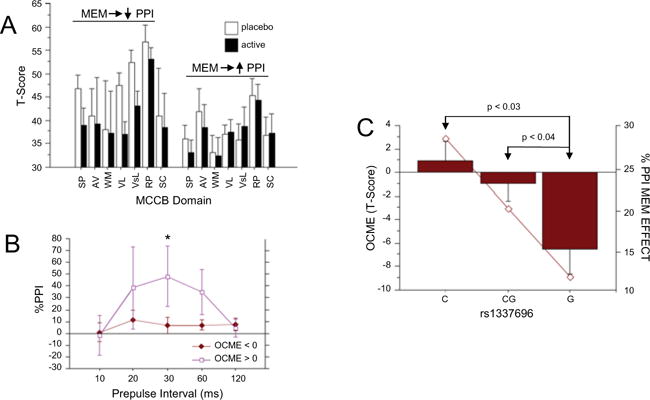Fig. 4.

Exploring the relationship between MEM neurocognitive effects and biomarkers form the present study. a MCCB-impairing effects of acute MEM challenge were evident among CPD subjects who experienced PPI-reducing vs. PPI-enhancing effects of MEM; those subjects whose PPI was enhanced by MEM on average had lower basal (PBO) MCCB scores that were unaffected by MEM. b The inverse relationship from that shown in a: elevated PPI among subjects (here HS and CPD) whose MCCB composite score was enhanced vs. impaired by MEM (20 mg). Asterisk, significantly greater MEM effect on PPI for 30 ms prepulse trials (p < 0.035) and 60 ms trials (p < 0.04) among subjects whose MCCB was enhanced by MEM. c Bars show composite MCCB OCME score after 20 mg MEM among CPD subjects, based on the identity of their SNP rs1337697, within the glutamate receptor gene, ionotropic N-methyl-D-aspartate receptor 3A (GRIN3A). Subjects homozygous for the G allele were more sensitive to the MCCB-disruptive effects of MEM, compared to C-homozygotes or CG-heterozygotes. The solid line overlapping these bars represents values for MEM-enhanced PPI in these subjects, showing an arithmetically parallel relationship with large effect size differences between GG and CC individuals (see text)
